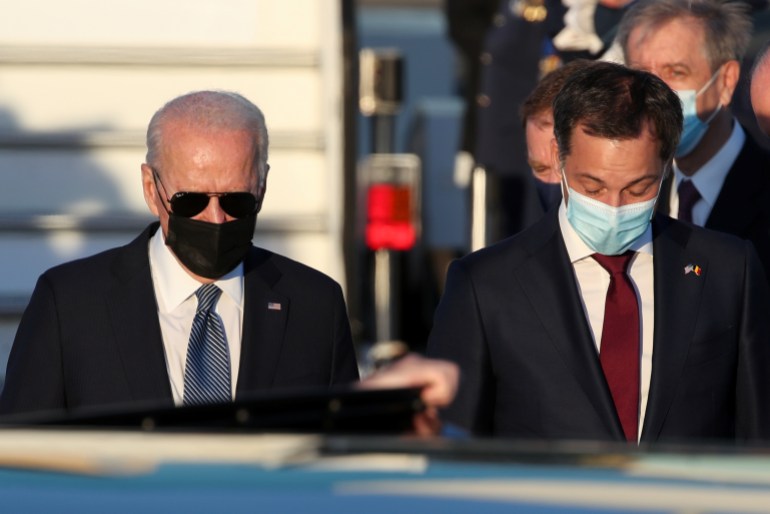NATO leaders hope to open a new chapter in transatlantic relations at a summit with US President Joe Biden on Monday, agreeing to focus on tackling climate change for the first time as well as countering China's military rise.
This summit - described by NATO Secretary-General Jens Stoltenberg as a "pivotal moment" - aims to turn the page on four years of tension with Biden's predecessor (Donald Trump) who shook confidence in the alliance by calling it "obsolete".
Diplomats say the 30 allies meeting in Brussels are looking to help the nuclear-armed alliance founded in 1949 address threats ranging from harsh weather that could exacerbate conflicts to Russian attempts to undermine "Western democracies" through covert attacks.
It is likely, according to diplomats, that Moscow's attempts to divide the West will be discussed before Biden's meeting with his Russian counterpart Vladimir Putin in Geneva on Tuesday.
The alliance has modernized its defenses since Russia's 2014 annexation of Crimea, but it remains vulnerable to cyber attacks and disinformation despite Moscow's denials of any attempts to destabilize NATO members.
Allies hope US President Biden (left) during NATO meetings will commit to collective defense (Reuters)
Turning the page of Trump
Diplomats say, however, that a top concern for alliance leaders is the need for Biden to recommit the United States to NATO's collective defense after the Trump era.
Envoys said Trump's rhetoric - which tended to be confrontational towards allies from 2017 to 2019 during NATO summits - created the impression of a crisis.
China's increased military and economic presence in the Atlantic, including joint military exercises with Russia, will face a strong response from NATO leaders.
"You won't see paragraphs and paragraphs about China in the statement," US National Security Adviser Jake Sullivan said, adding: "The language will not be inflammatory, it will be clear, direct and forthright."
The summit is also expected to pledge to significantly reduce its armed forces' carbon dioxide emissions by 2050.
The Allies will also adopt a code of conduct to end the tension caused by the unilateral decisions of the United States on withdrawing from Afghanistan, and Turkey's military interventions in Syria, Libya and the Caucasus.
Biden will hold a long meeting with Turkish President Recep Tayyip Erdogan after the working session.

